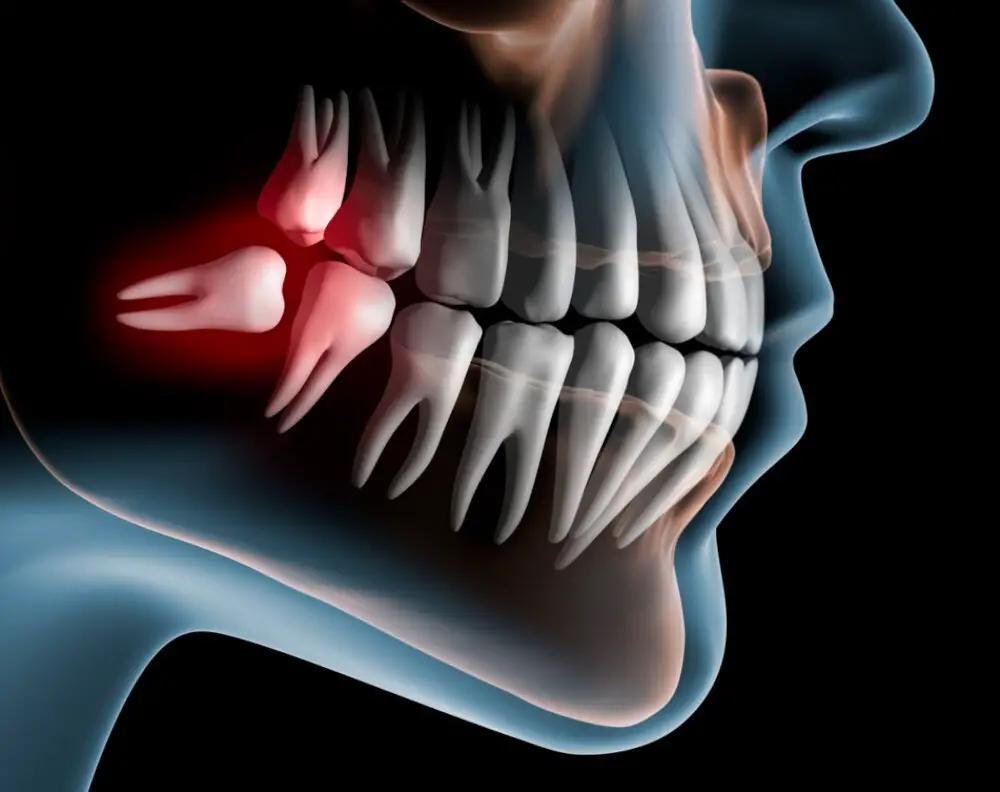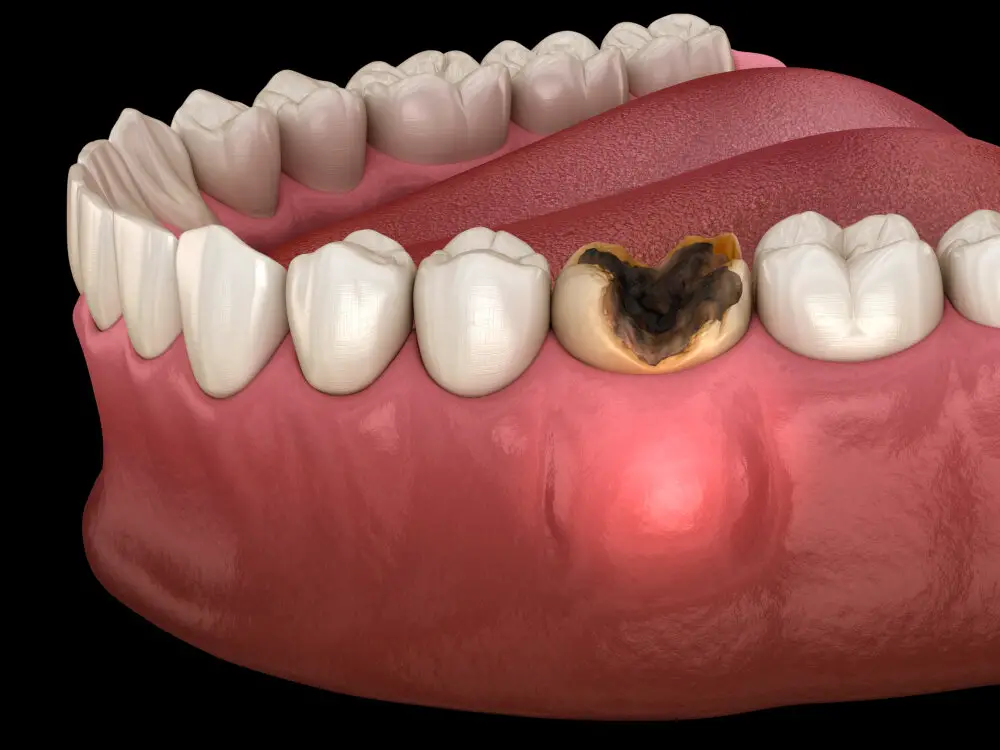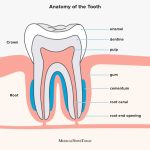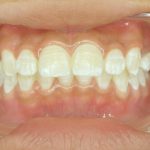Say Goodbye to Wisdom Teeth Pain: Effective Ways to Make It Go Away

Wisdom teeth, also known as third molars, are the last set of teeth to emerge in the back of your mouth. While they can be an asset to some, they can also be a source of discomfort and pain for many. Wisdom teeth typically emerge between the ages of 17 and 25, and their growth can often cause soreness, swelling, and even infection. The pain can be unbearable, making it difficult to eat, speak, and sleep. Fortunately, there are effective ways to alleviate wisdom teeth pain and make it go away for good. Whether you’re experiencing mild discomfort or severe pain, there are several tried and tested methods to help you deal with wisdom teeth pain. From home remedies to over-the-counter medication, there are many options available to you. In this article, we’ll explore some of the most effective ways to manage wisdom teeth pain. From natural remedies to professional dental treatments, we’ll give you all the information you need to say goodbye to wisdom teeth pain once and for all. So, if you’re tired of suffering from wisdom teeth pain, read on to discover the best ways to make it go away.
Wisdom teeth are the third molars that develop at the back of the mouth, usually in the late teenage years or early twenties. They are called wisdom teeth because they emerge at a time when a person is considered to be more mature and wiser. However, in many cases, these teeth cause pain and discomfort. This is because they often don’t have enough space to grow properly, leading to crowding and impaction. When this happens, the teeth can push against other teeth, causing pain and discomfort, and even leading to infection or damage to surrounding teeth and gums. Additionally, the eruption of wisdom teeth can also cause swelling, inflammation, and tenderness in the surrounding gums and jaw, leading to further pain and discomfort.
Home remedies for wisdom teeth pain relief

Wisdom teeth pain can be excruciating, and it’s something that most people will experience at some point in their lives. Fortunately, there are several home remedies that you can try to alleviate the pain. One of the most effective remedies is rinsing your mouth with warm saltwater. This helps to reduce inflammation and kill bacteria, which can help to relieve some of the pain. Simply mix a teaspoon of salt with a cup of warm water and swish it around in your mouth for a few minutes before spitting it out. Another effective home remedy for wisdom teeth pain is using a cold compress. Applying a cold compress to the affected area can help to numb the pain and reduce inflammation. You can make a cold compress by wrapping a bag of frozen peas or a towel soaked in cold water around a cold pack or ice cubes. Hold the compress against your cheek for 15-20 minutes at a time, taking breaks in between to avoid damaging your skin. These two remedies are just a few of the many effective ways to manage wisdom teeth pain without having to resort to over-the-counter painkillers or prescription medications.
Saltwater rinse is an effective and natural remedy for wisdom teeth pain. It involves mixing warm water with salt and swishing it around your mouth for about 30 seconds before spitting it out. Saltwater rinse helps to reduce inflammation, kill bacteria, and soothe the pain associated with wisdom teeth. It is an easy and inexpensive solution that you can do several times a day to alleviate discomfort. Additionally, saltwater rinse is great for maintaining good oral hygiene, which is essential for preventing infections and promoting healing after wisdom teeth removal. Overall, incorporating saltwater rinse into your daily routine is a simple yet effective way to say goodbye to wisdom teeth pain.
One of the most effective ways to alleviate wisdom teeth pain is through ice pack application. Ice packs can help reduce swelling and numb the affected area, providing temporary relief from the discomfort. To apply an ice pack, wrap it in a thin towel and hold it against the cheek near the affected area for 15-20 minutes at a time. Be sure to take breaks in between applications to avoid damaging the skin. Additionally, using ice packs in combination with over-the-counter pain medication can provide even greater relief from wisdom teeth pain.
Clove oil is a natural remedy that has been used for centuries to alleviate toothache pain. It contains eugenol, a compound with anti-inflammatory and analgesic properties that can help reduce swelling and numb the affected area. To use clove oil, simply apply a small amount to a cotton swab and gently dab it onto the affected tooth and surrounding gums. Be sure to dilute the oil with a carrier oil such as coconut or olive oil as it can be quite potent and cause irritation if applied directly to the skin. Clove oil can provide temporary relief from wisdom teeth pain, but it is important to seek professional dental care if the pain persists or worsens.
Peppermint tea is a natural remedy that can help alleviate wisdom teeth pain. This tea contains menthol, which has a cooling effect and can provide relief from pain and inflammation. Additionally, peppermint tea has antibacterial properties that can help prevent infection in the affected area. It is also known to have a calming effect that can help reduce stress and anxiety that often accompanies dental pain. Drinking a cup of peppermint tea a few times a day can help ease the discomfort and promote healing. It is a safe and effective alternative to over-the-counter pain medications and can be easily made at home using fresh or dried peppermint leaves.
Garlic is a powerful natural remedy that can help alleviate wisdom teeth pain. This herb contains a compound called allicin, which has anti-inflammatory and antibacterial properties that can help reduce swelling and fight off infection. You can use garlic in a variety of ways to ease wisdom teeth pain, such as chewing on a fresh clove or applying garlic paste directly to the affected area. Additionally, adding garlic to your diet can help boost your immune system and promote overall oral health, which can help prevent future wisdom teeth pain. Just be sure to talk to your dentist before using garlic as a treatment option to ensure it is safe for you.
Overthecounter pain medication

Over-the-counter pain medication is a popular and effective way to manage wisdom teeth pain. Ibuprofen and acetaminophen are two of the most commonly used pain relievers for this type of pain. Ibuprofen works by reducing inflammation, while acetaminophen works by blocking pain signals. It is important to follow the recommended dosage for these medications and to avoid taking them for an extended period of time. Taking more than the recommended dose can lead to serious side effects, including liver damage or gastrointestinal bleeding. In addition to ibuprofen and acetaminophen, there are other over-the-counter pain medications that can be helpful for managing wisdom teeth pain. Aspirin, naproxen, and ketoprofen are all anti-inflammatory medications that can help reduce swelling and pain. It is important to talk to a healthcare provider before using any of these medications, especially if you have any underlying medical conditions or allergies. In some cases, a healthcare provider may recommend a prescription pain medication or a combination of over-the-counter medications to manage wisdom teeth pain.
Wisdom teeth pain is a common issue that many people face, and over-the-counter (OTC) pain medications can provide some relief. The most commonly used OTC pain medications for wisdom teeth pain are nonsteroidal anti-inflammatory drugs (NSAIDs) such as ibuprofen and aspirin. These drugs work by reducing inflammation and blocking the production of certain chemicals in the body that cause pain. Acetaminophen is another OTC pain medication that is often used for wisdom teeth pain, but it works differently than NSAIDs by blocking pain signals to the brain. It is important to follow dosage instructions carefully and not exceed the recommended amount of any medication. If pain persists or worsens, it is important to consult a dentist or healthcare provider for further evaluation and treatment.
Dosage recommendations are crucial when dealing with pain relief medication. Overdosing or underdosing can lead to adverse effects and may not provide the desired results. When it comes to managing wisdom teeth pain, it is essential to follow the recommended dosage on the label or as directed by your dentist. Generally, over-the-counter pain relievers such as ibuprofen or acetaminophen are recommended for managing mild to moderate pain. However, for severe pain, your dentist may prescribe stronger medication. It is important to note that taking a higher dosage than recommended or taking medication more frequently than prescribed can lead to complications such as liver damage or addiction. Therefore, it is crucial to follow the dosage recommendations carefully to effectively manage wisdom teeth pain while minimizing the risk of adverse effects.
Possible side effects of wisdom teeth removal include pain, swelling, bleeding, bruising, and infection. Pain and swelling are the most common side effects and can last for several days after the procedure. It is important to follow the post-operative instructions provided by your dentist or oral surgeon to minimize these side effects. In some cases, more severe complications can occur, such as nerve damage or dry socket, which is a painful condition that occurs when the blood clot that forms after a tooth extraction becomes dislodged. If you experience any unusual symptoms after having your wisdom teeth removed, it is important to contact your dentist or oral surgeon immediately.
Prescription medication for wisdom teeth pain relief

When it comes to wisdom teeth pain relief, prescription medication is often the go-to option. While over-the-counter pain relievers like ibuprofen or acetaminophen can help, they may not be strong enough to alleviate the intense discomfort that often comes with wisdom teeth. Prescription painkillers such as codeine, hydrocodone, or oxycodone may be prescribed by a dentist or oral surgeon to manage pain. However, it’s important to note that these medications can be highly addictive and should only be used under the supervision of a medical professional. In addition to painkillers, anti-inflammatory drugs like naproxen or corticosteroids may also be prescribed to reduce swelling and inflammation in the affected area. Antibiotics may also be prescribed if an infection is present. It’s important to follow the prescription instructions carefully and only take the medication as directed to avoid any potential side effects or complications. While prescription medication can provide effective relief for wisdom teeth pain, it’s important to also practice good oral hygiene and follow any post-operative instructions provided by your dentist or oral surgeon to ensure a smooth and speedy recovery.
Wisdom teeth pain can be unbearable, but there are various prescription medications that can help to alleviate the discomfort. Nonsteroidal anti-inflammatory drugs (NSAIDs) such as ibuprofen and aspirin are commonly used to reduce inflammation and pain. Acetaminophen is also an effective pain reliever but does not reduce inflammation. In some cases, stronger painkillers such as opioids may be prescribed, but these should be used with caution due to their potential for addiction. It’s important to follow the instructions of your dentist or doctor carefully and not to exceed the recommended dosage or frequency of use.
Dosage recommendations are a crucial aspect to consider when taking pain medication for wisdom teeth pain. The amount of medication needed varies from person to person, depending on factors such as age, weight, and overall health. It is essential to follow the instructions provided by the healthcare professional or on the medication label to avoid potential side effects or complications. Over-the-counter pain medications such as ibuprofen or acetaminophen are often recommended to manage pain and inflammation. However, it is important to note that these medications should not be taken for an extended period or in excessive amounts. If the pain persists or becomes severe, it is recommended to seek medical attention promptly.
Like any medical procedure, the removal of wisdom teeth can come with possible side effects. Some of the most common side effects include swelling, bruising, and pain in the affected area. Patients may also experience bleeding, discomfort when opening their mouth, and difficulty eating or speaking. In rare cases, patients may experience nerve damage, infection, or dry socket, a condition where the blood clot that forms after the tooth extraction becomes dislodged, exposing the bone and nerves underneath. However, these complications are typically rare, and most patients recover without any significant issues. It’s essential to follow your dentist’s instructions carefully and contact them if you experience any unusual symptoms after the procedure.
Surgical options for wisdom teeth pain relief

Wisdom teeth, the third set of molars, often grow in the late teens or early twenties. While some people may not experience any problems with their wisdom teeth, others may suffer from pain, swelling, and other complications. In such cases, surgical options are available to provide pain relief. One of the most common surgical procedures is wisdom teeth extraction. This procedure involves removing one or more wisdom teeth to alleviate pain and prevent further complications. Extraction is typically recommended when the teeth are impacted, meaning they are growing in an abnormal position, or when there is not enough space in the mouth for them to grow properly. Another surgical option for wisdom teeth pain relief is crown lengthening. This procedure involves removing gum tissue and bone to expose more of the tooth’s surface, making it easier to clean and reducing the risk of infection. Crown lengthening may be recommended when a wisdom tooth is partially erupted and causing pain or when there is not enough tooth structure above the gum line to support a filling or crown. While both extraction and crown lengthening can provide relief from wisdom teeth pain, it is important to consult with a dentist or oral surgeon to determine the best course of action based on individual circumstances.
Extraction is a dental procedure in which a tooth is removed from its socket in the jawbone. In the case of wisdom teeth, extraction is often necessary due to impaction, infection, or the potential for future problems. The procedure can be performed under local or general anesthesia, depending on the complexity of the case and the patient’s preferences. After the extraction, the patient may experience some discomfort and swelling, but with proper care and pain management, the healing process should be relatively quick and smooth. It’s important to follow the dentist’s instructions for post-operative care to ensure a successful recovery and prevent complications.
Flap surgery is a dental procedure that is commonly used to treat gum disease. During this surgery, the dentist will lift a section of the gum tissue away from the teeth, allowing them to clean and remove any bacteria or debris that may be present. Once the area is cleaned, the dentist will then reposition the gum tissue back over the teeth and secure it in place with stitches. Flap surgery can be an effective way to treat gum disease and prevent further damage to the teeth and gums. However, it is important to follow all post-operative instructions provided by the dentist to ensure proper healing and prevent complications.
Crown lengthening is a dental procedure that involves removing gum tissue or bone to expose more of a tooth’s surface. This may be necessary if a tooth is decayed, broken, or has insufficient tooth structure for a restoration. It can also be performed for cosmetic reasons, to improve the appearance of a \gummy\ smile. Crown lengthening is usually performed under local anesthesia, and the recovery time is typically a few days. While it may sound intimidating, crown lengthening can be an effective way to restore the health and appearance of your teeth and gums.
Wisdom teeth pain can be a real headache, but fortunately, there are many ways to relieve it. One of the most effective ways is to use over-the-counter pain relievers such as ibuprofen or acetaminophen. Applying a cold compress to the affected area can also help alleviate the pain and reduce swelling. Rinsing your mouth with warm salt water can provide relief by reducing inflammation. Additionally, there are several natural remedies that could help, such as clove oil, ginger, and tea tree oil. If the pain is unbearable, you can also opt for prescription pain medication or consider getting your wisdom teeth removed. By using these methods, you can effectively manage your wisdom teeth pain and get back to your regular routine.
Consulting a dentist is crucial when it comes to diagnosing and treating wisdom teeth pain. A dentist can determine the severity of the pain and identify the underlying cause. In addition, they can recommend appropriate treatment options that can alleviate the pain and prevent further complications. Ignoring wisdom teeth pain can lead to serious oral health issues such as infection, decay, and other dental problems. Therefore, seeking professional advice from a dentist is vital to maintaining good oral health and preventing long-term damage. With the help of a dentist, patients can say goodbye to wisdom teeth pain and enjoy a healthy, pain-free smile.
Conclusion

In conclusion, dealing with wisdom teeth pain can be a daunting experience, but there are various effective ways to alleviate the discomfort. From taking painkillers and applying ice packs to rinsing with saltwater and opting for surgical removal, there are plenty of options to choose from. It is crucial to consult with a dental professional to determine the best course of action for your specific situation. Remember, the pain will subside, and with proper care and attention, you can say goodbye to wisdom teeth pain for good.







